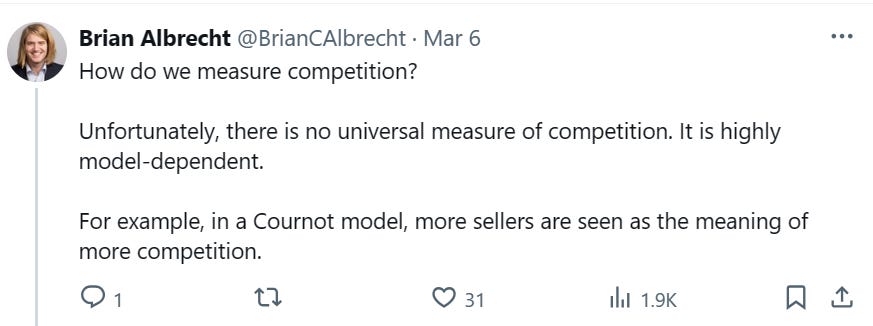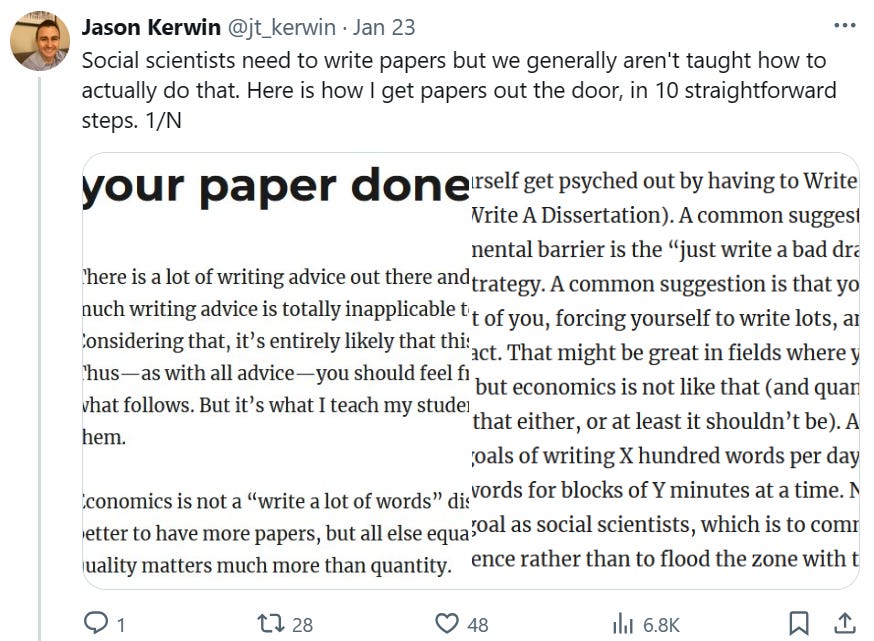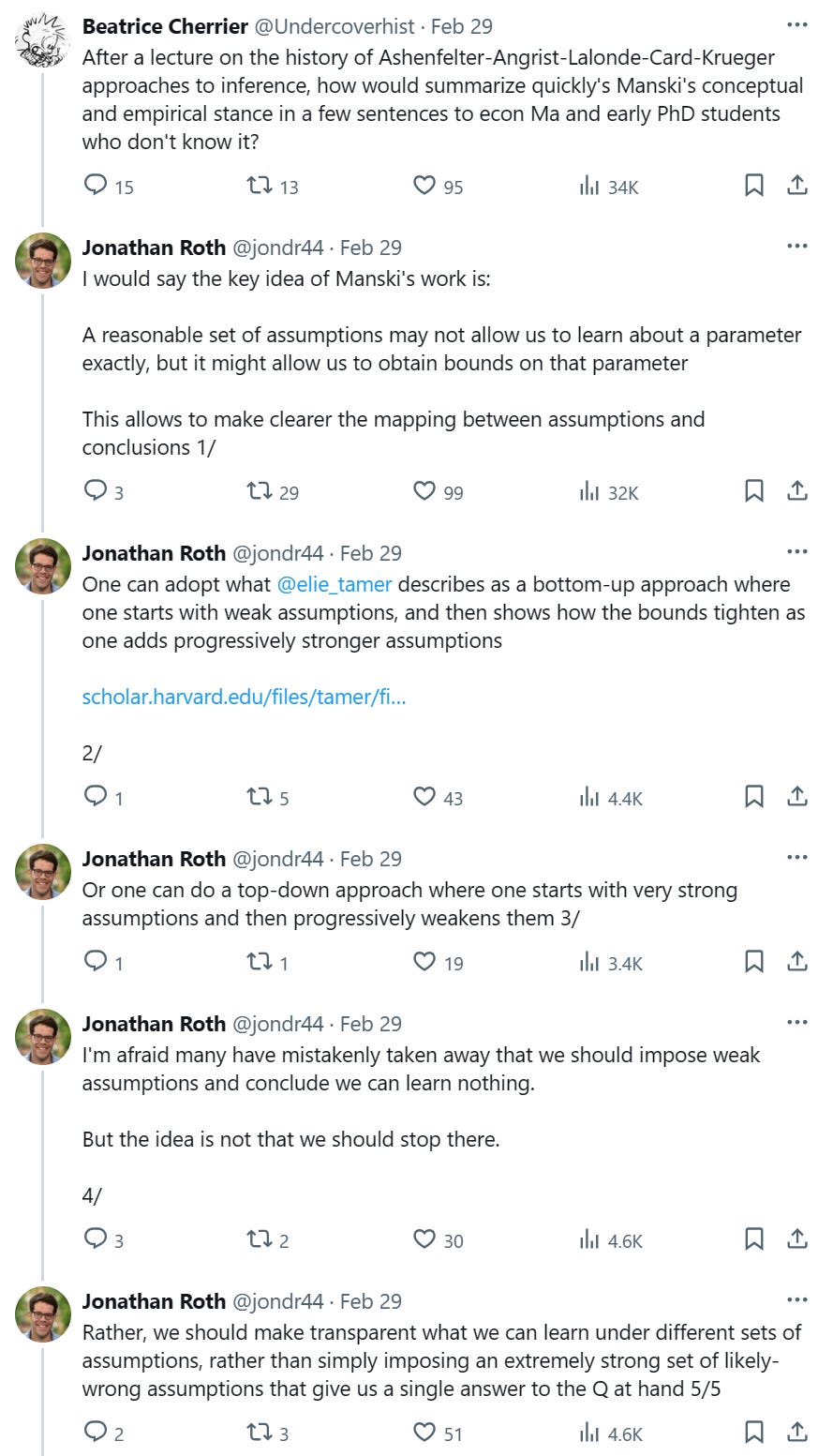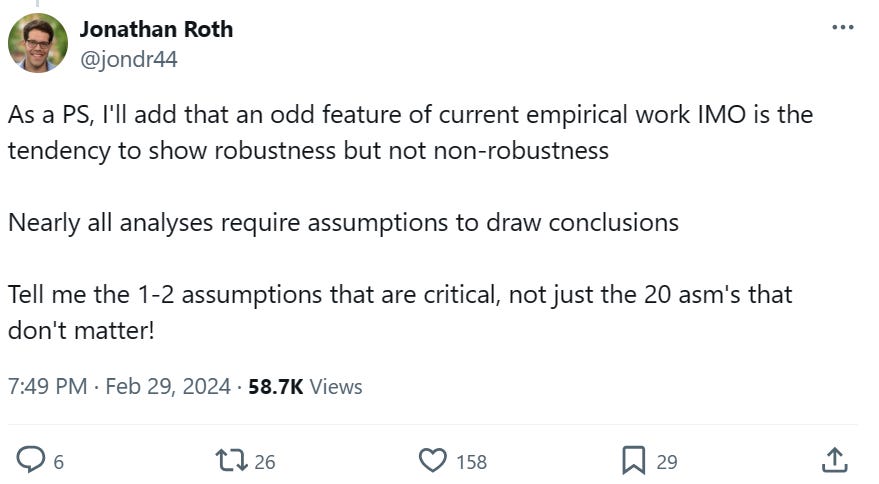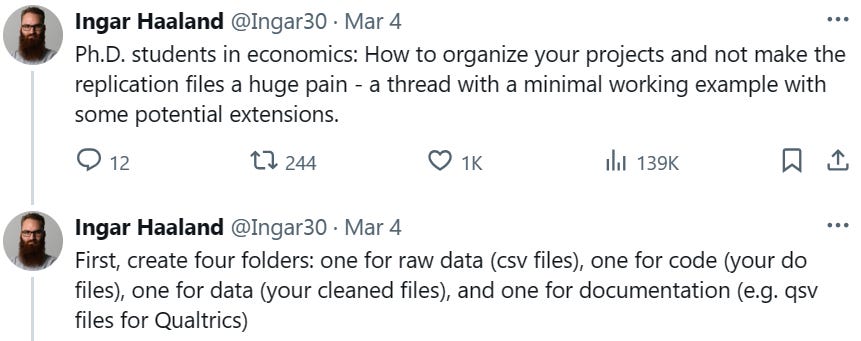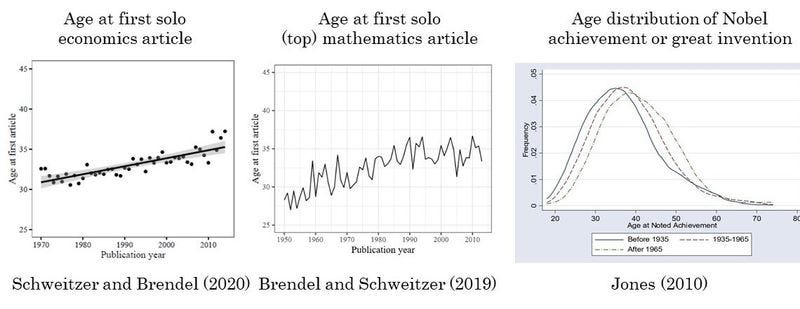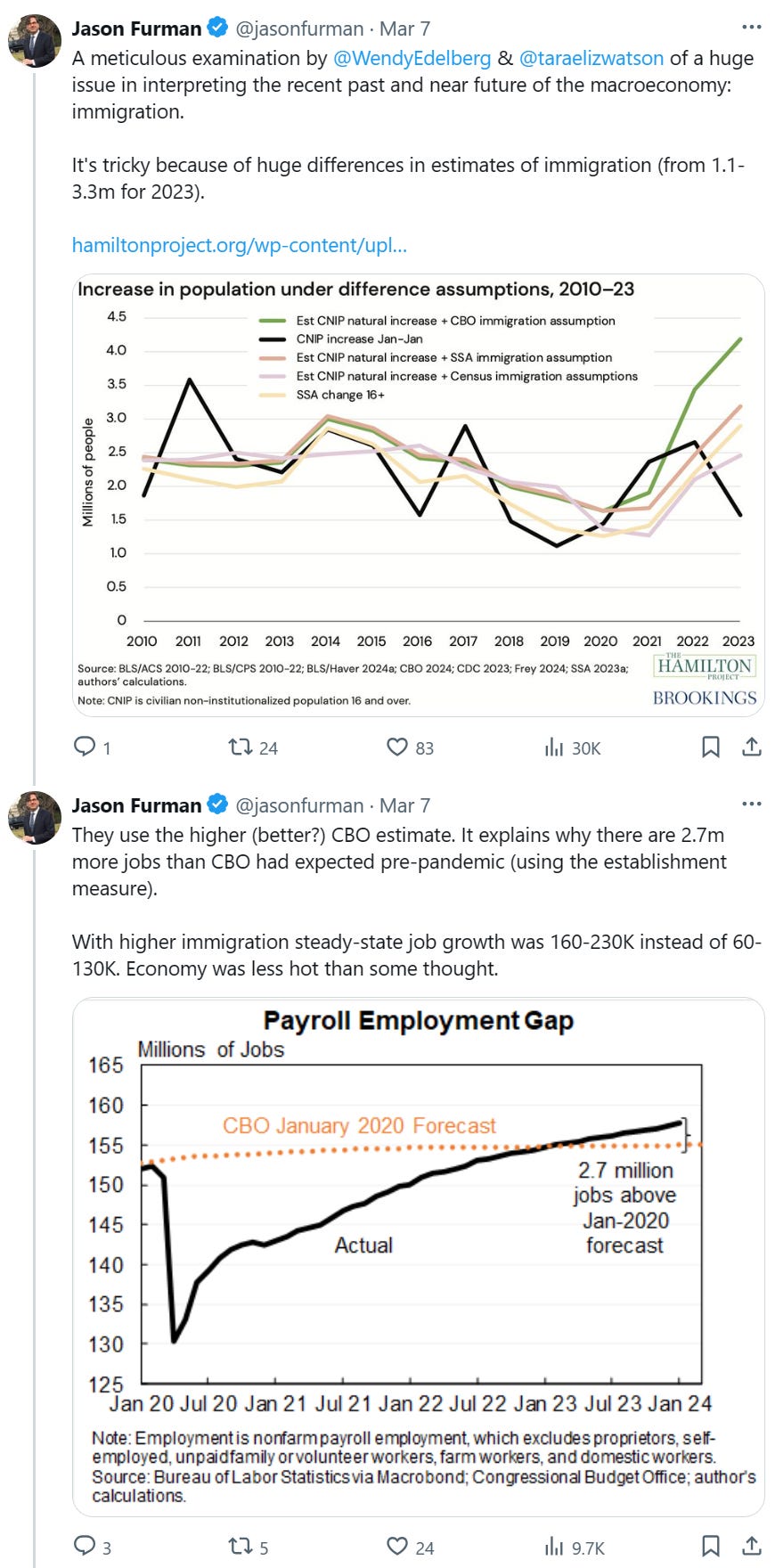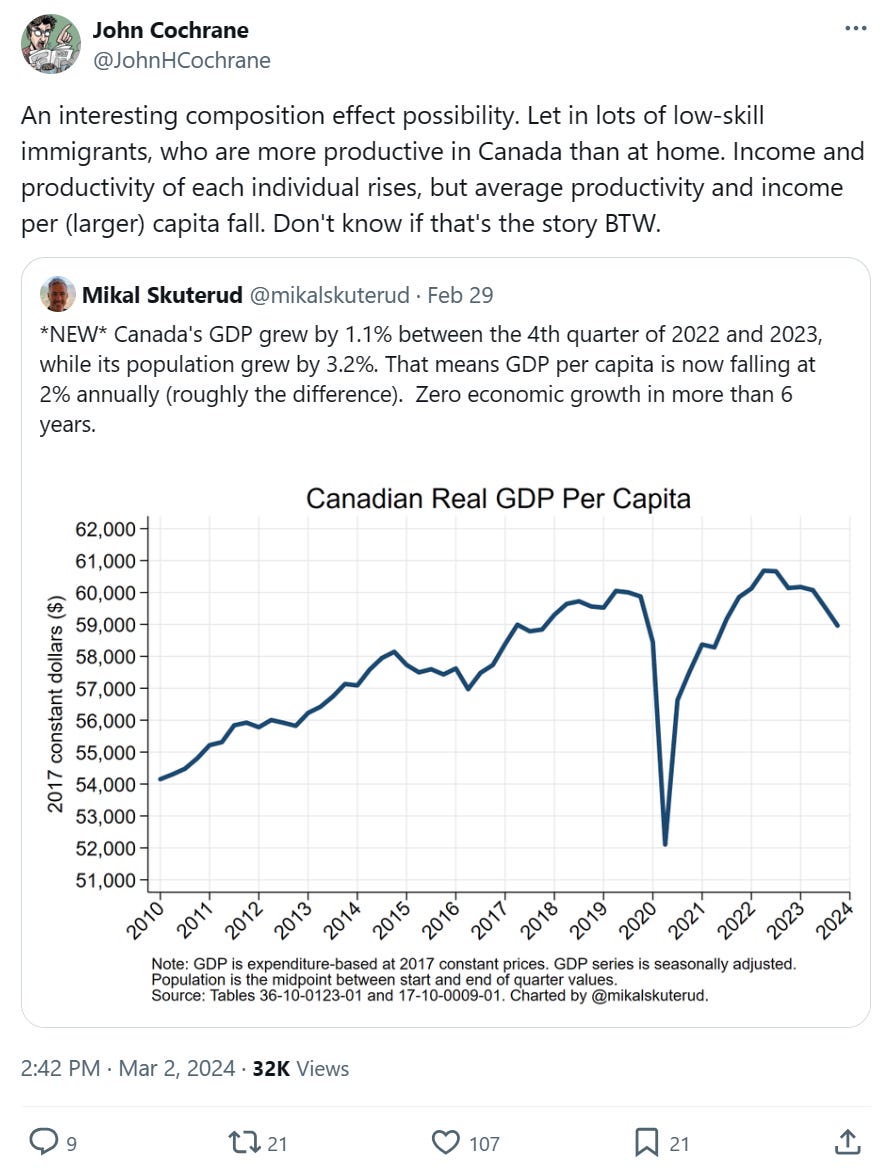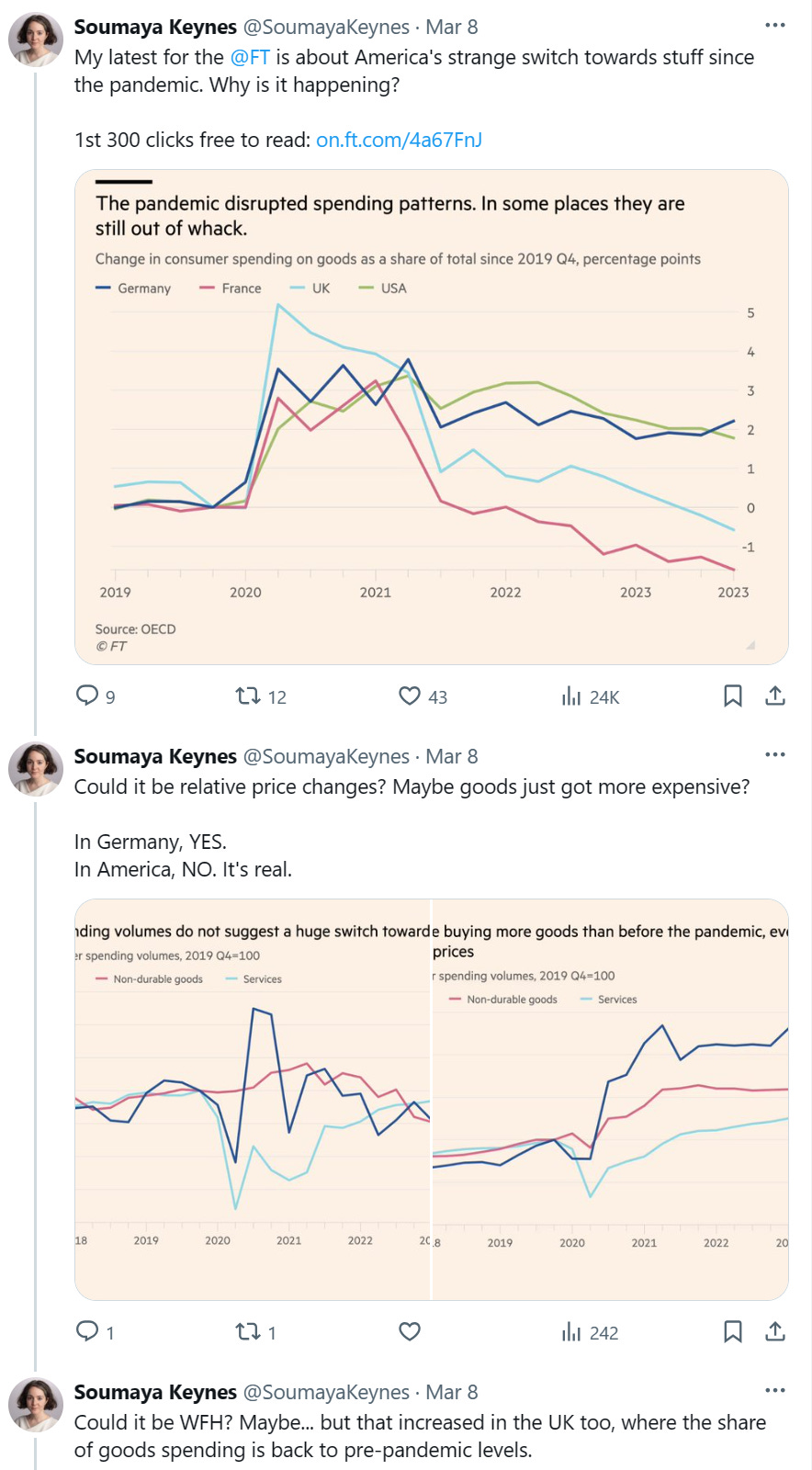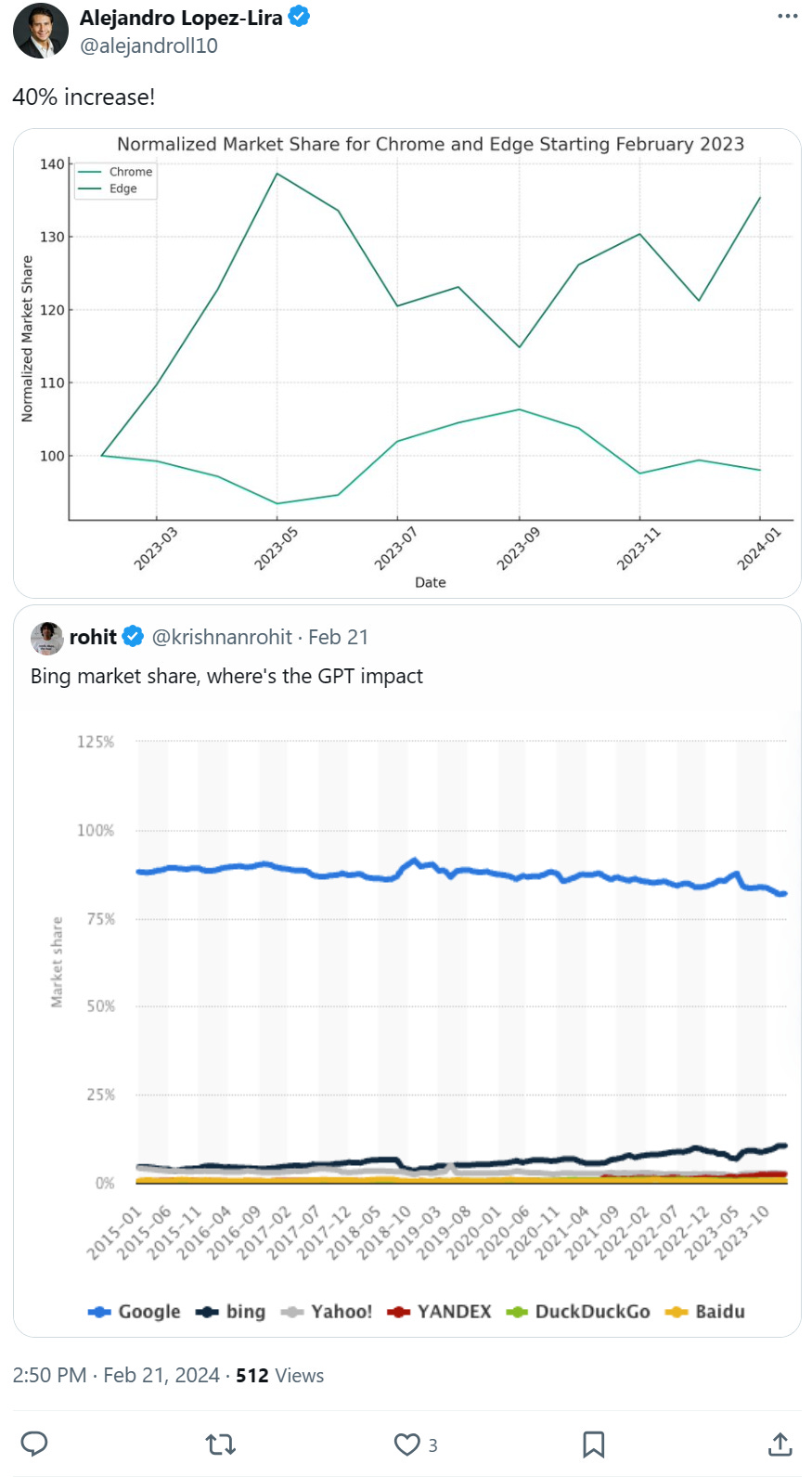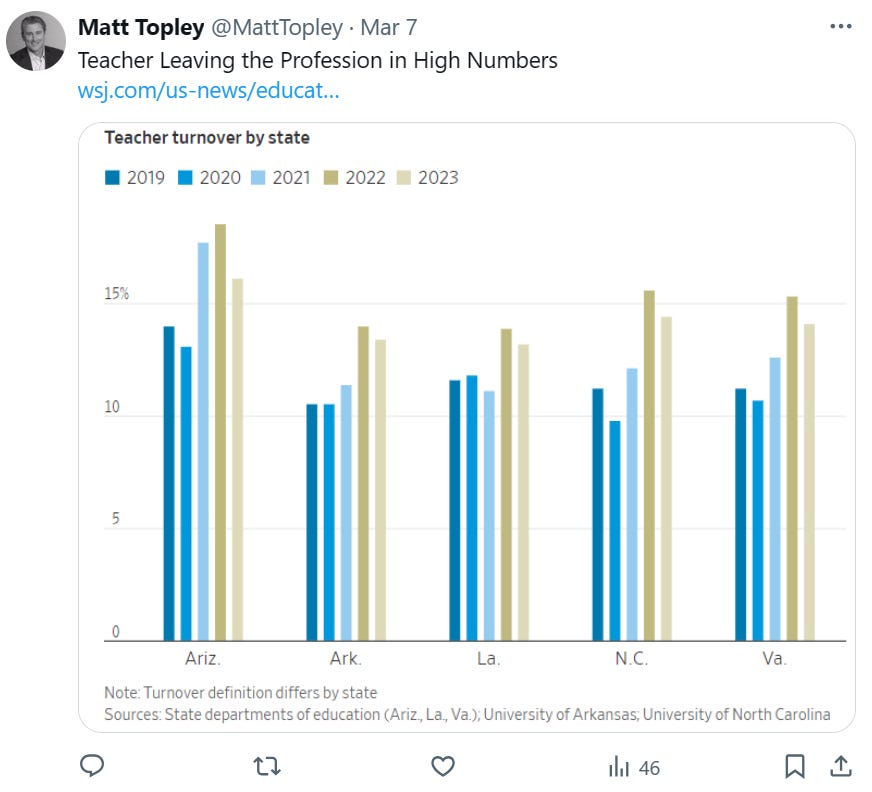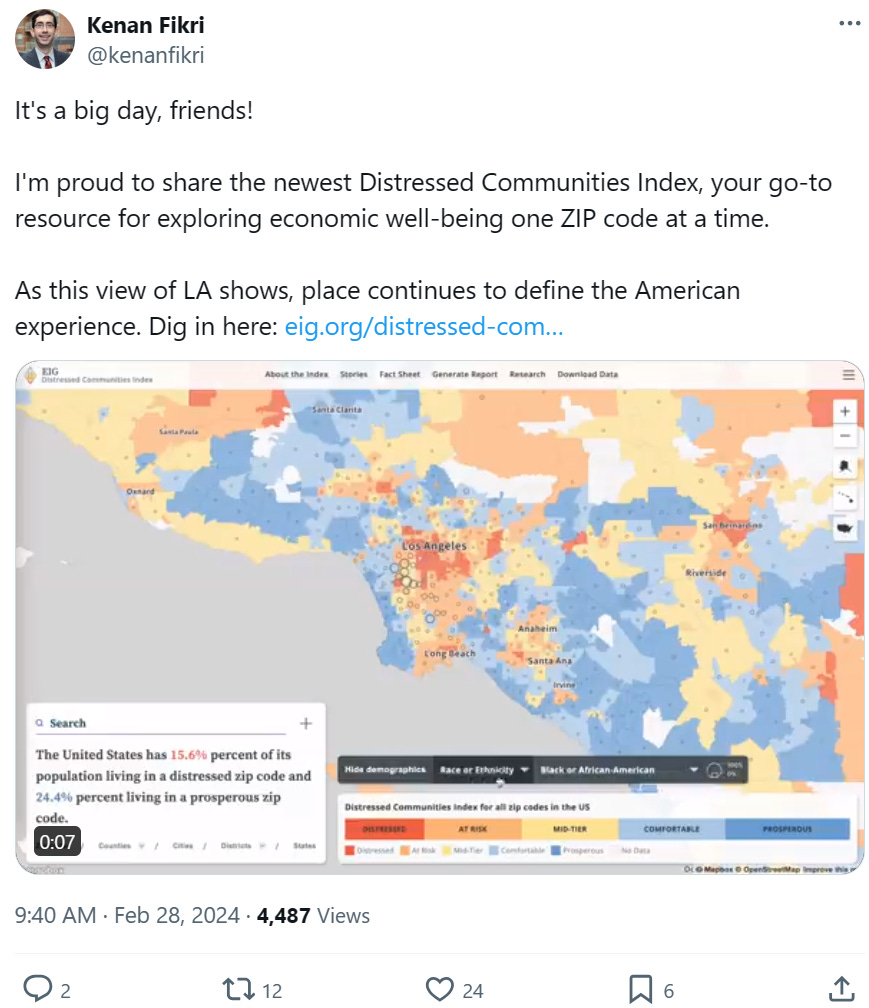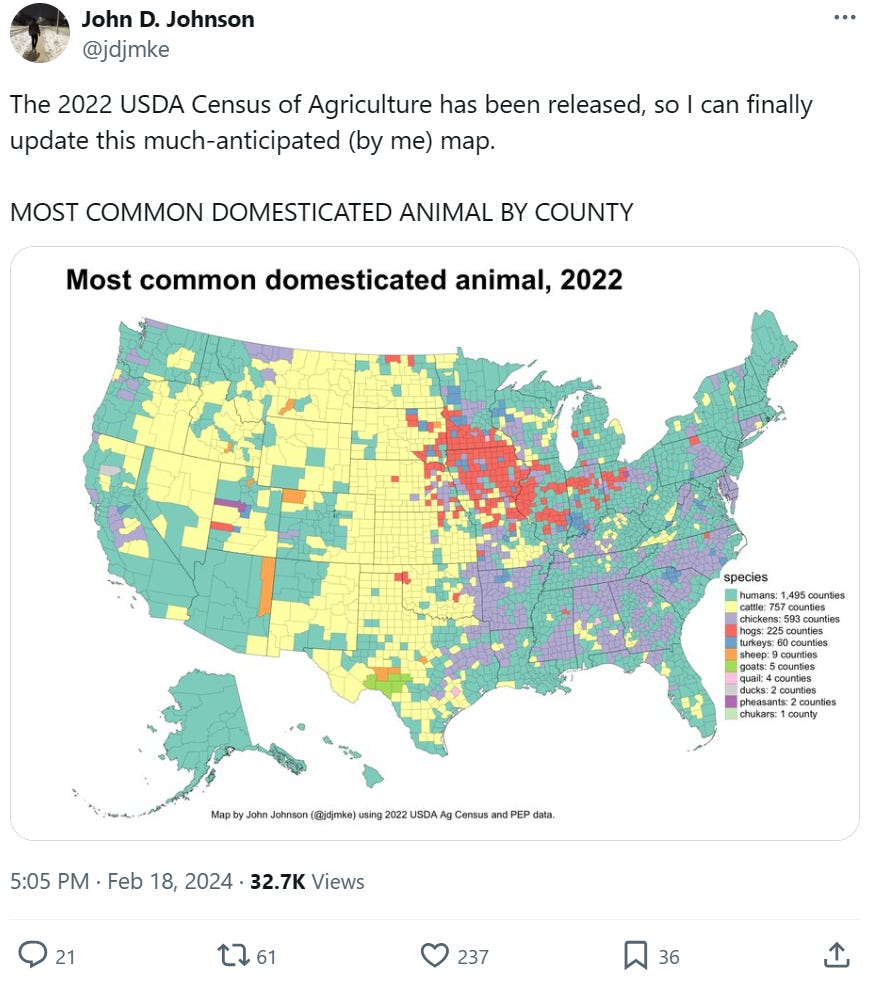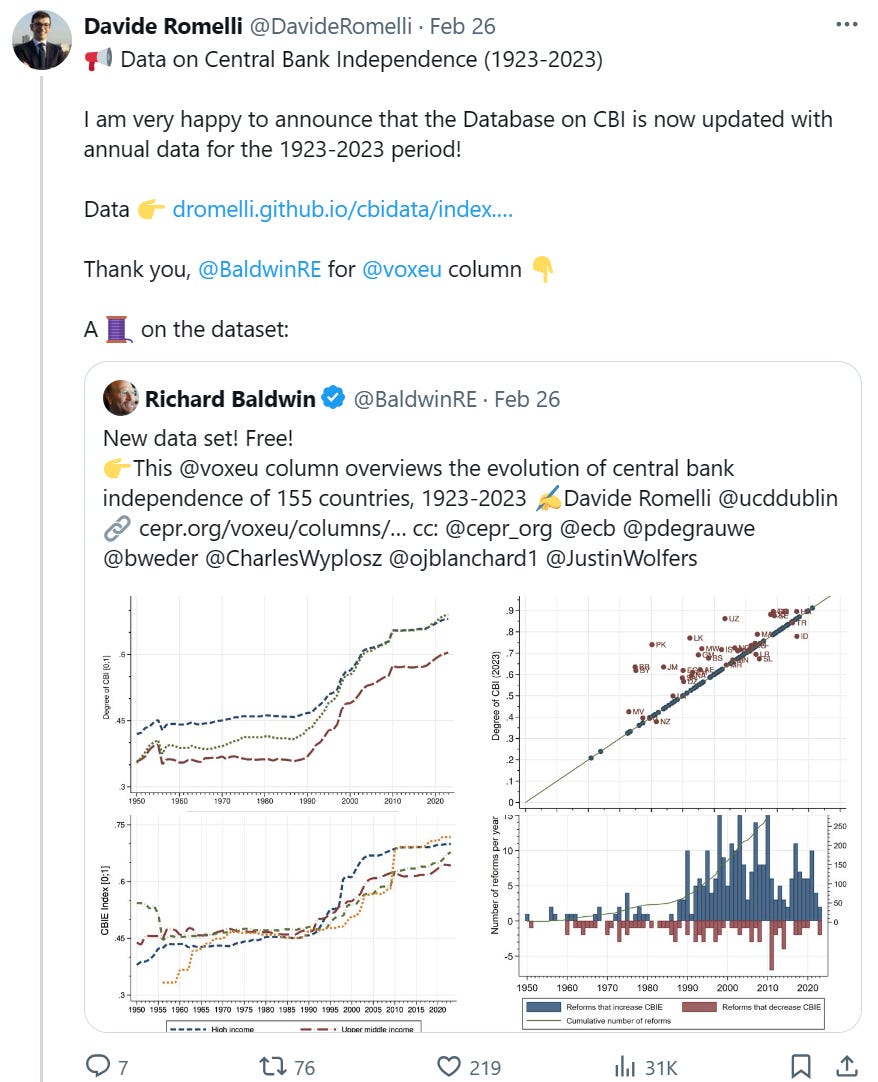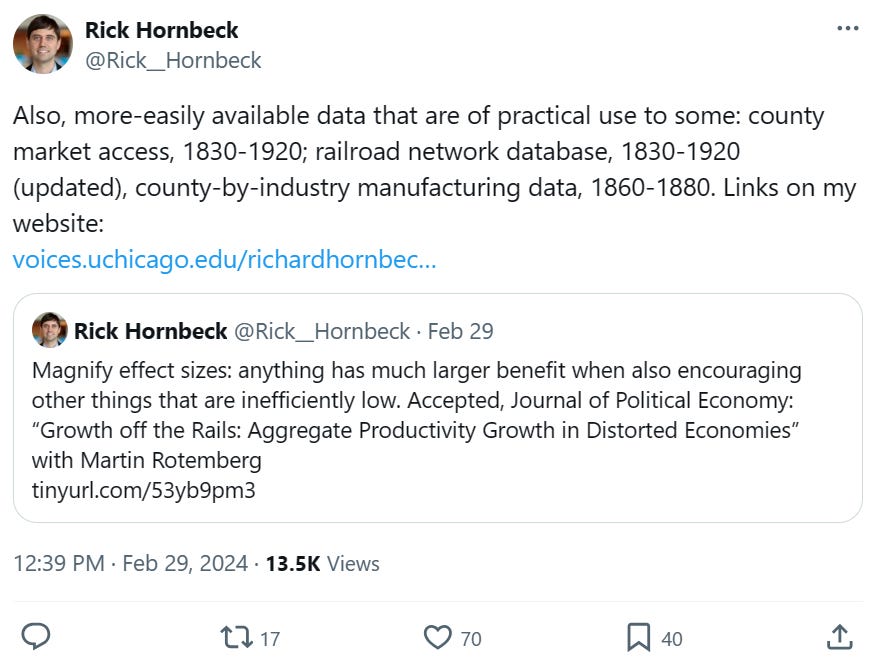Best of #econtwitter - Weeks of Feb 25, March 3, and March 10, 2024: interesting tweets
Welcome readers old and new to this week’s edition of the Best of Econtwitter newsletter. Please submit suggestions — very much including your own work! — over email or on Twitter @just_economics.
Misc
^seems like a tough question but surprisingly good thread, ft. AJR 2004 and Piketty-Saez. Other suggestions?
^generative question, a lot of replies (probably the right answer)
^would also be interested!
^more(?) seriously, “I think it’s helpful to use old frameworks to understand new results”
Replication conflagration
^a LOT of replies, a small sample:
Predoc talk
^these and underlying tweets (cf, cf) launched a lot of takes. (Many of these schools don’t have econ masters though, so, 🧐; and there’s no way anything like a majority of incoming grad students have both a masters and a predoc, even at top schools. But)
Rather than collate commentary, I will jump in to say that IMO the discussion is missing the big picture (apologies if I missed anyone making this point).
The big picture is that training time has increased across all fields, i.e. not just econ. This is the “Burden of Knowledge” of Jones (2009): to get to the frontier, there’s more stuff to learn now than there was in 1950. Matt Clancy as always does an amazing job summarizing and synthesizing related literature here:
In large part, the rise of predocs merely reflects the macro trend of “it takes longer to learn the necessary stuff”. It’s going to be hard to fight that trend
(This is not to say that predocs are the optimal institution for extending the period of human capital accumulation, but, any proposed alternative? Is it worse than 7 years becoming the norm for the PhD? …Alas the same trends will make that an inevitability too)
Lengthening grad school + having kids
The above predoc discussion led into:
US population growth
^I’ll keep saying it: this fact is underrated!
^obviously, that bar chart is an accounting and does not imply an immediate counterfactual
^amazing
Canadian population growth has also been wild (as featured extensively in the newsletter):
Charts
^🤨🤨🤨🤨
^predisposed to believe this but is it a larger increase than other professions?
^supply curves slope up
^you’re really trusting nurses? doctors?? dentists???
Public goods
Fin
^solve for the equilibrium […in reality seems unlikely this practice would ever be popular]




